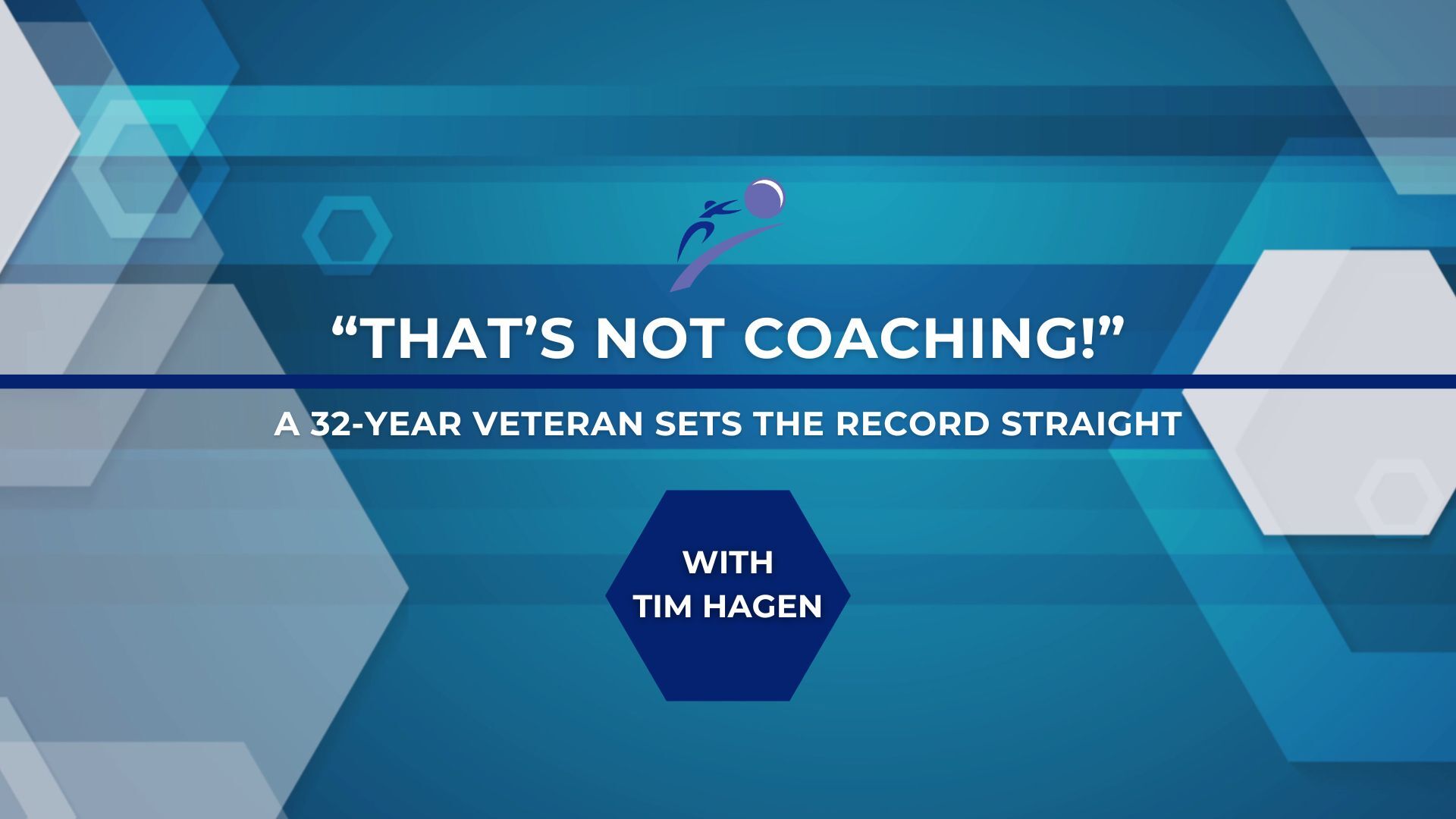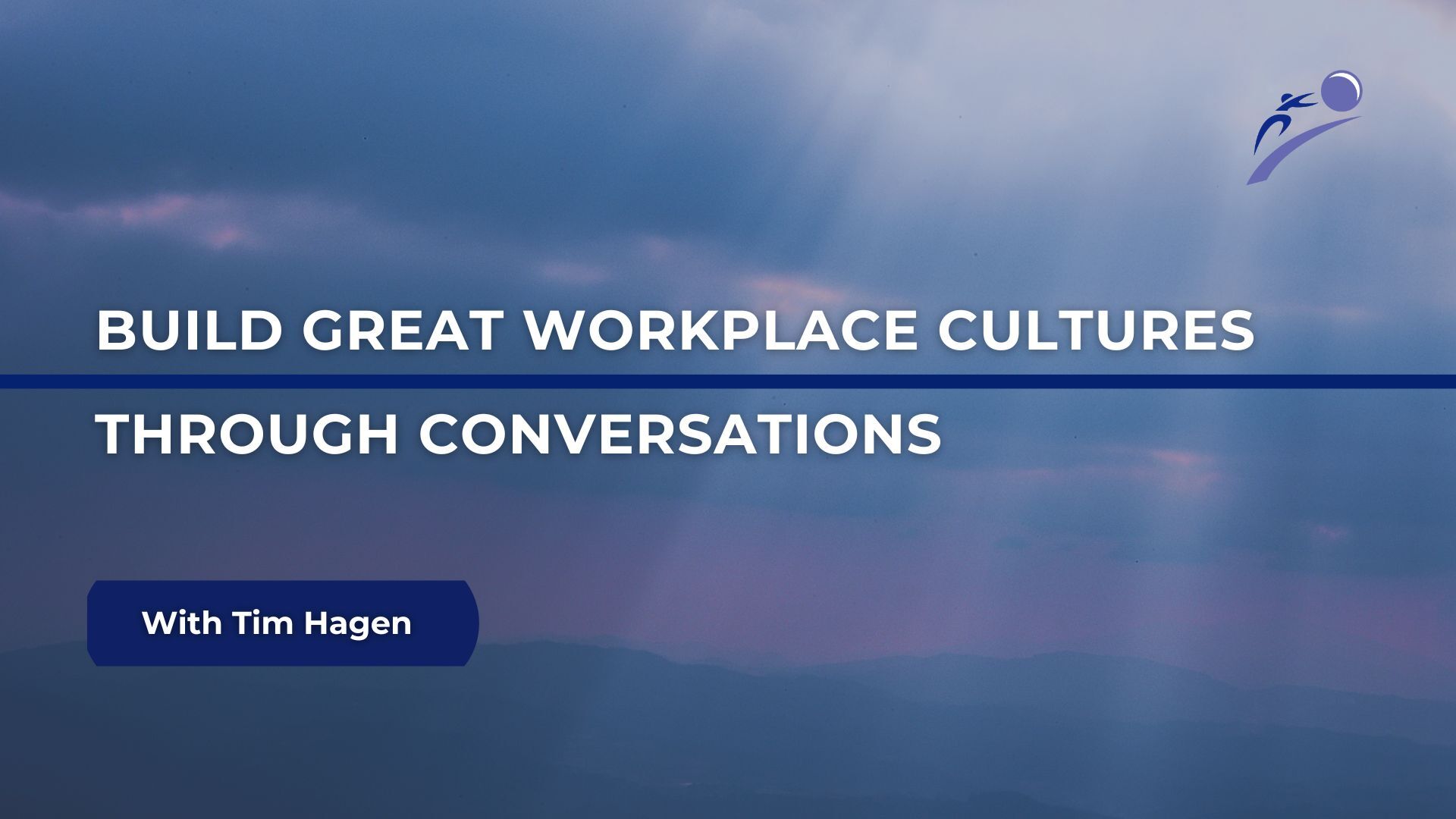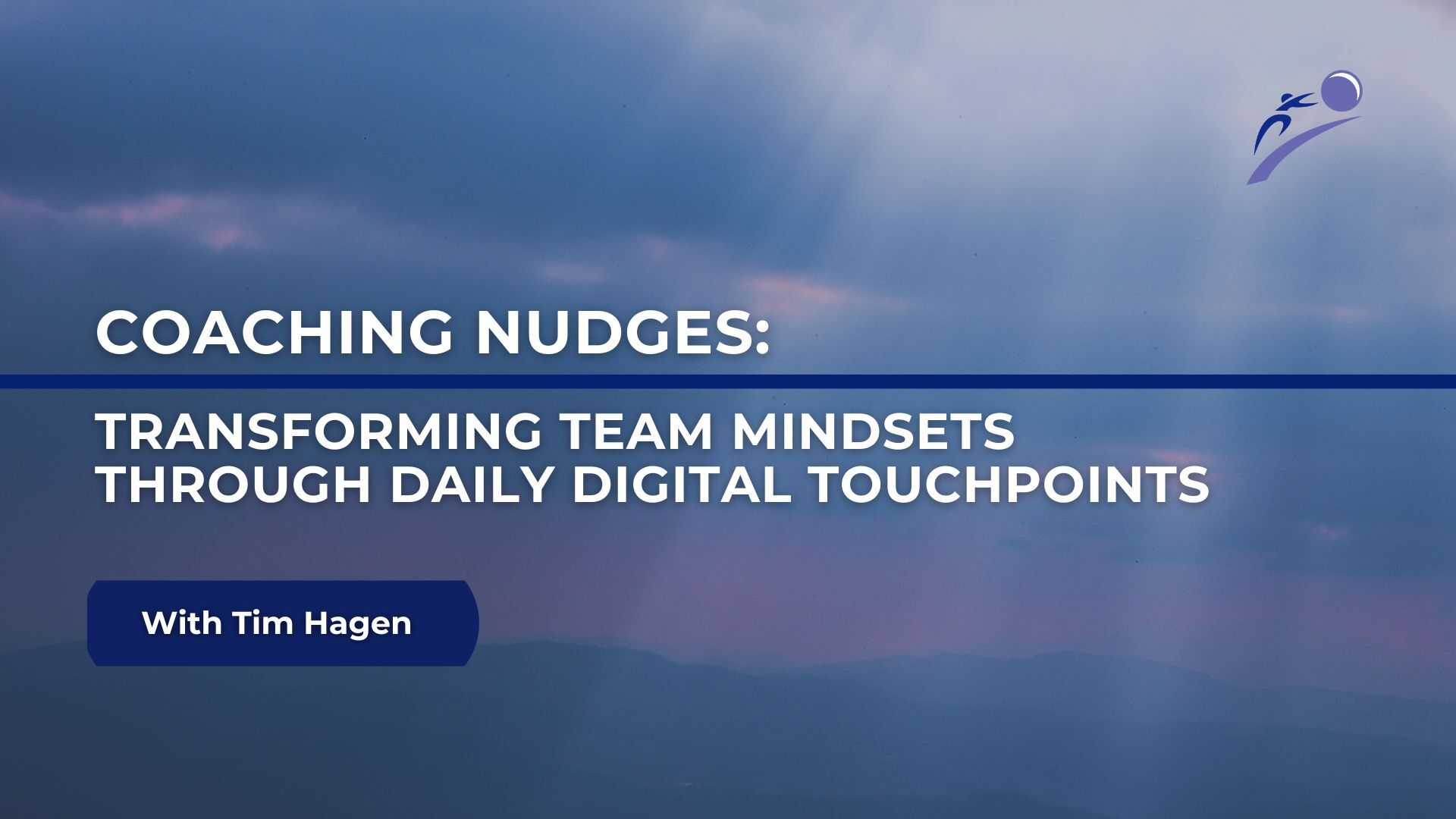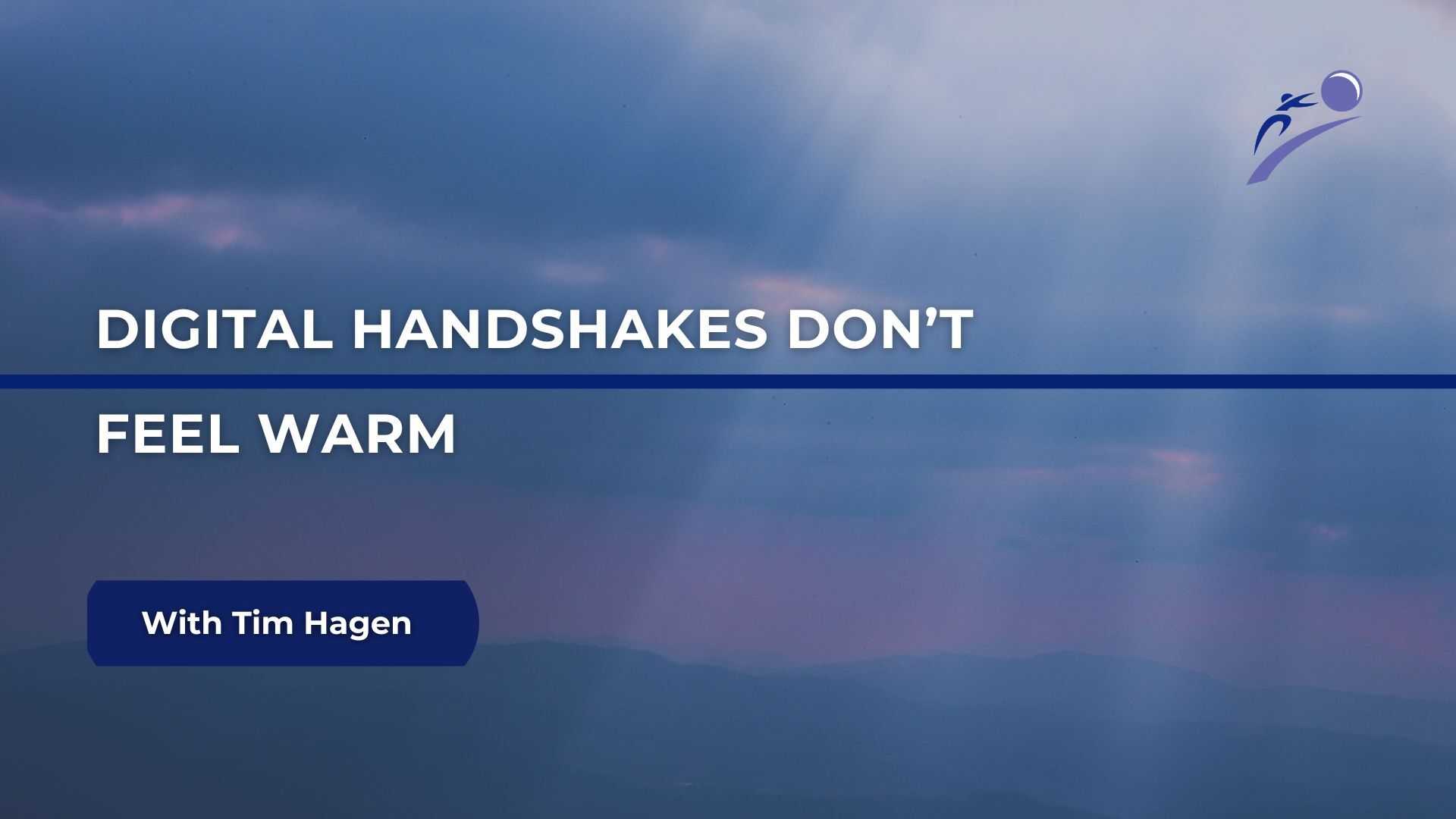"That's Not Coaching!" - A 32-Year Veteran Sets the Record Straight
So, what is coaching? With everything going on with artificial intelligence and its impact on coaching, training, instructional design, learning and development, and LMS platforms, everybody is going through extremely fast-paced, rapid change. Yet I go back to one fundamental: we still have to talk to each other.
How is this impacting coaching? What is coaching?
After 32 years in the coaching industry, I've witnessed the same thing over and over, something we as human beings do that is very unique: we tend to put our own spin, our own definition on things. Here's an example with a recent story.
I was talking to somebody who shared what they were doing and they kept putting the phrase "coaching" in there. They said, "I was coaching him and trying to provide coaching, and..." I asked them to walk me through what happened specifically. They started to tell me how they felt and shared their frustration, anger, and some comments they made to their coworkers and even management above them.
This was not coaching. This was frustration, feedback laced with frustration, and then even more anger that the individual didn't receive that well.
Think about that. Fundamentally, if I come to you and say, "I'm angry and you're really frustrating me. I need you to be a better teammate," does anyone in their right mind when hearing that think, "Yeah, you're right. I could be a better teammate." It does not happen that way. It never has.
What's so interesting to me is how we put the title of "coaching" or "leadership" or "mentoring" on things when we're actually not doing those at all.
Here are my three definitions of coaching.
#1 Situational Coaching - We have to coach to a situation, and this is where we make a mistake in the workplace. We have two employees who are not working well together. We bring them in and say, "John, you have to get along with Susie. Susie, you have to get along with John..." and we walk away from that meeting thinking we provided wonderful coaching. No, you didn't. You had a command and demand. That will not behaviorally cause any long-lasting change. The next day might be better, but it does not facilitate real change. Now, in the moment, do we need to situationally coach? Absolutely.
#2 Observational Coaching - This type of coaching is very popular, also called spot coaching. We tend to spot or see something, and we want to coach to it. Now, be really honest with yourself here: Do we spot things that are positive or are we triggered by things that are negative? Typically, when I ask that question, most people say when they see negative things, we want to fix and correct. Think about the psychology of that. If most of our "coaching" is spot or observational coaching and it's correcting and fixing something, even though we might be right, what is the impact on the people that receive that? Is it inspiring and motivating? Do we even know how they're taking that insight and internalizing it?
#3 Continuous Coaching - This is something we subscribe to at Progress Coaching. Continuous coaching is scheduling time every week or every two weeks, focusing on a specific area and driving improvement using a coaching framework. At Progress Coaching, our coaching framework is QALMS. There's other frameworks out there, and whichever one you use, a framework is so important in coaching. If you don't have a framework, it's a lot like getting up in front of 500 people and winging a speech with no outline and no clue what you're about to say.
Why do I share this? When coaching at your companies, create a definition. "Coaching is (fill in the blank) by (doing what)..." and then list the attributes and actions. That's a methodology we teach called defining coach. If you do not have a definition at your company, you will have vastly different interpretations of what coaching is.
I was traveling out to a client site about six months ago and we went to a few locations and one of the gentlemen was telling me of his coaching during his visits. By the time we finished, I thought to myself that none of what he explained was coaching; it was all just feedback. His intentions were good and there was a lot of strength-based feedback, yet there wasn't a lot of coaching.
Gallup organization reports people engage eight times more when we lead with people's strengths. Yet, let's be honest. When we call someone into our office spur of the moment, what's the employee's typical first response? Every time I've asked that question for the last 32 years, I've never had a positive response. Typically, people think they must be in trouble. Why? Because we've conditioned that.
Tasha Eurich in her study, Insight, reports 85% of people significantly lack self-awareness. So if we're giving feedback, 8.5 out of every 10 people are discounting and dismissing it. We have to ask the right questions.
"What are you going to do to positively engage?"
"What are two things that you're doing well and what's that one thing that you have an opportunity to raise your game?"
Notice, I did not say the word constructive feedback.
Make sure you define what coaching is. Don't leave the definition of coaching open for interpretation, or you'll have not only inconsistent application of leadership methods, but also inconsistent results across the organization.
Join the Workplace Coaching Times: a free digital publication dedicated to mentoring, coaching and leadership development. We are a community of leaders, manager and coaches transforming workplace challenges into coaching victories-- one conversation at a time.





